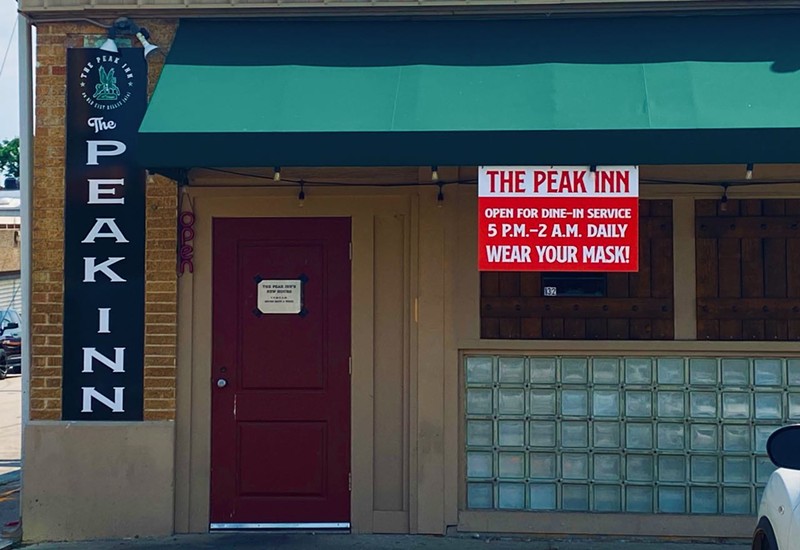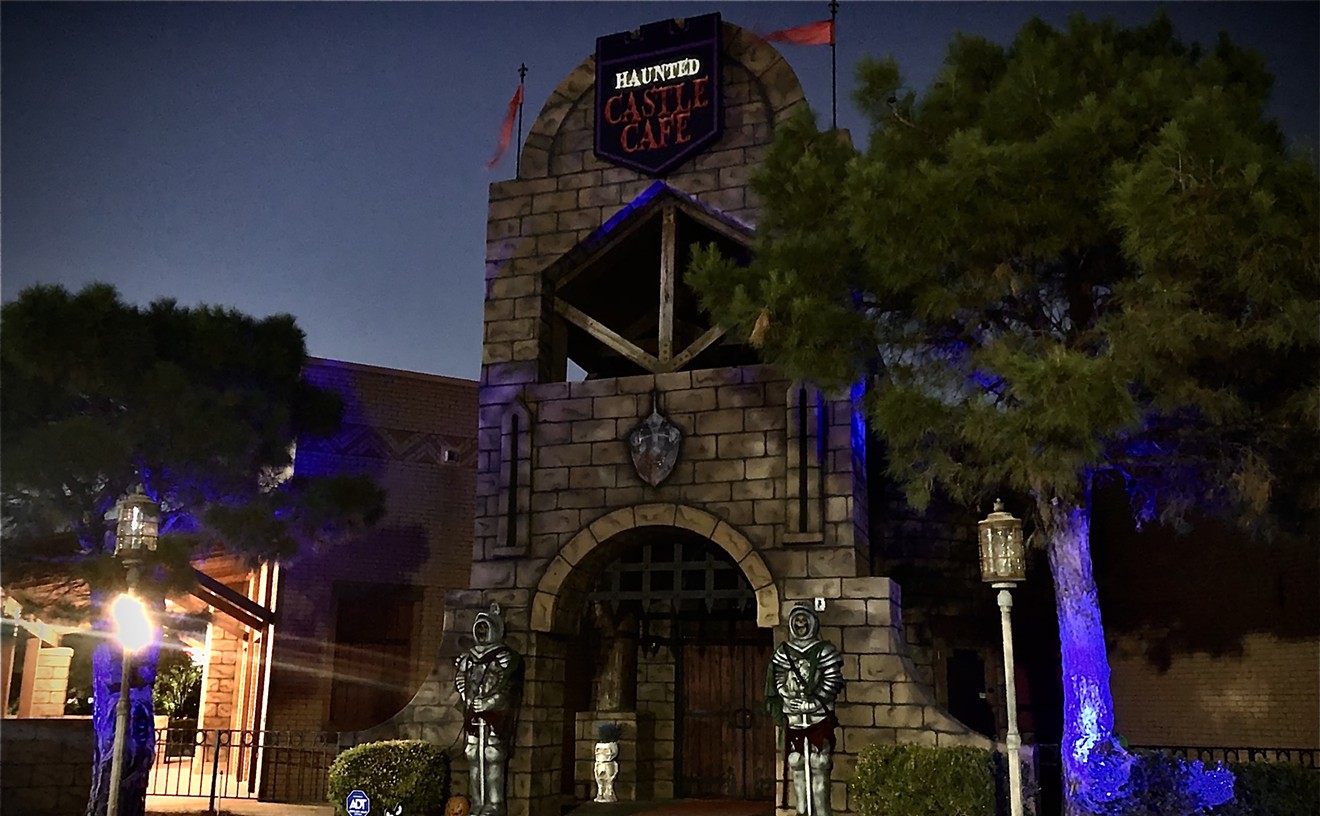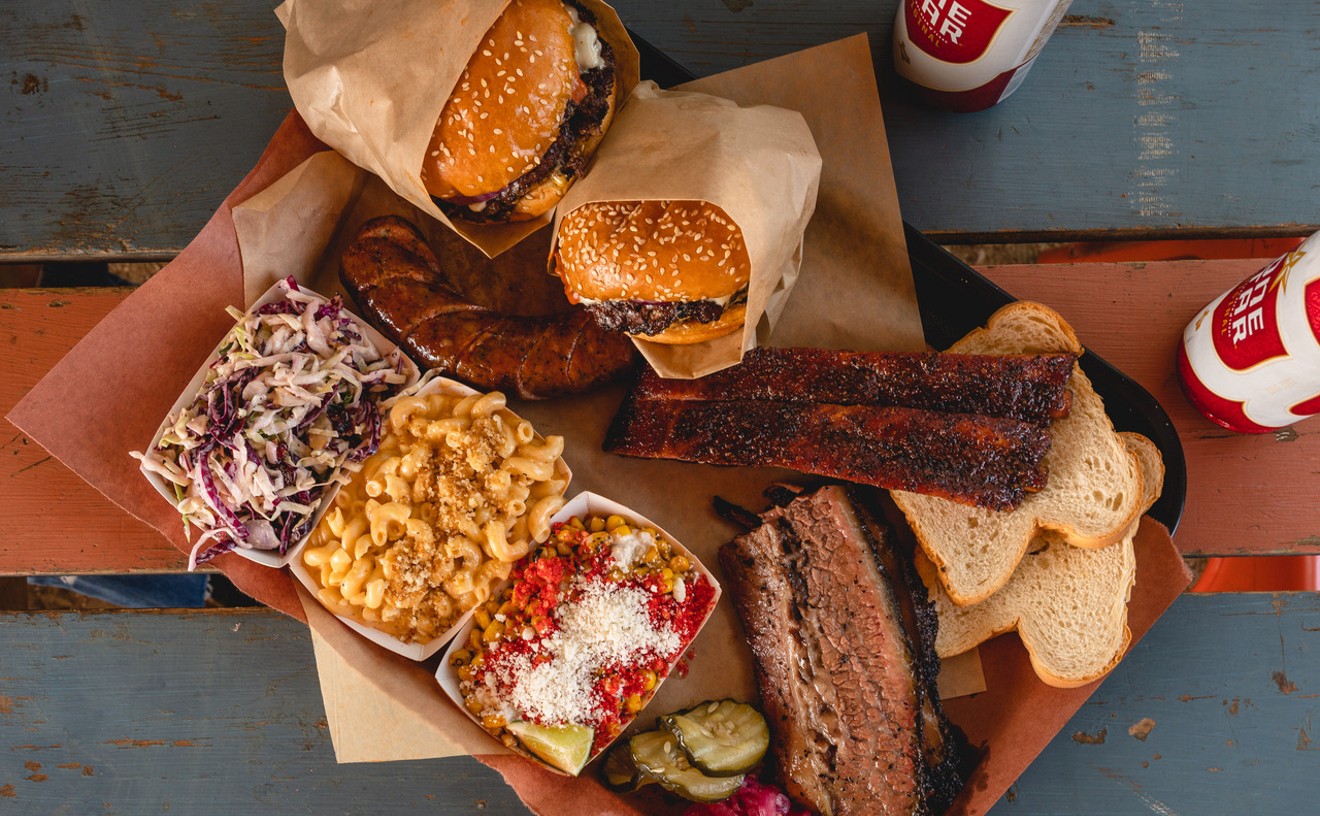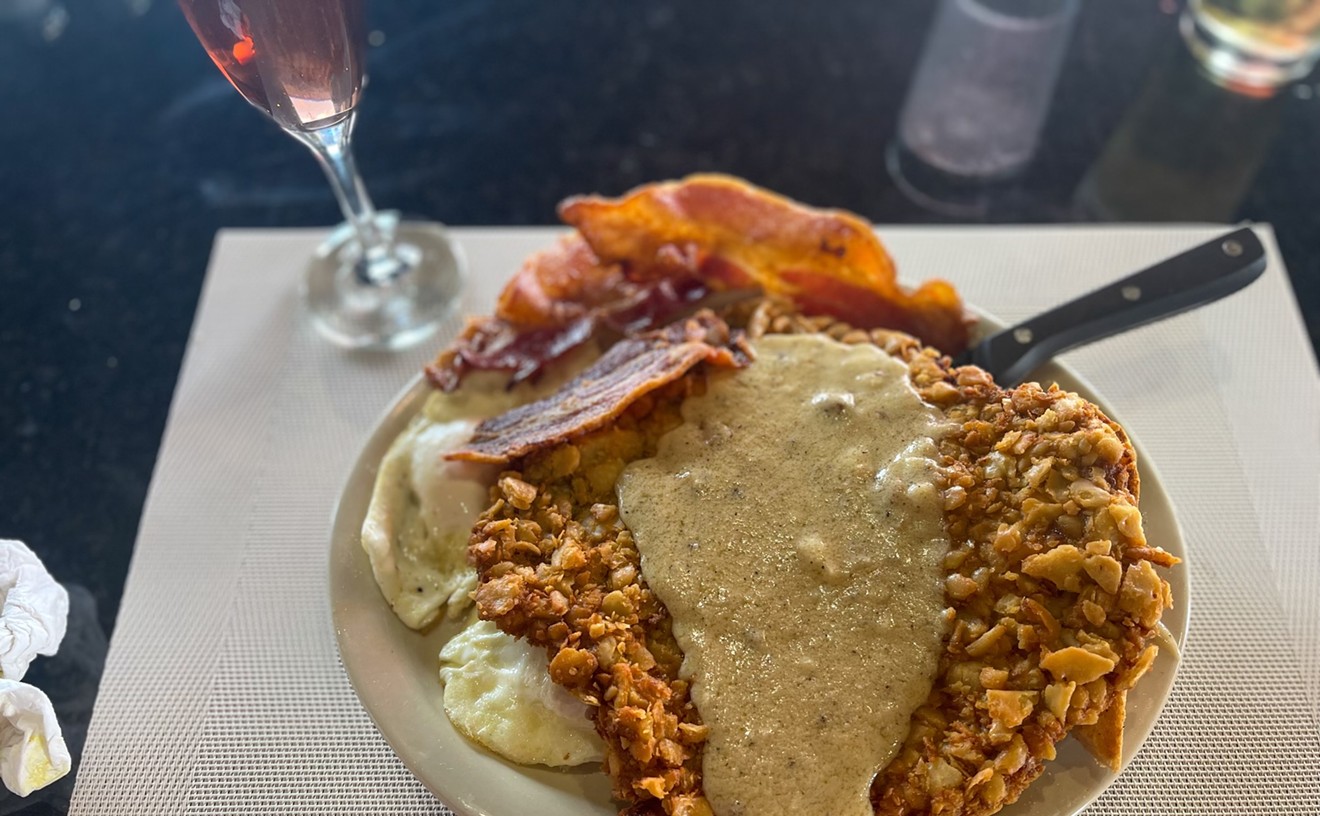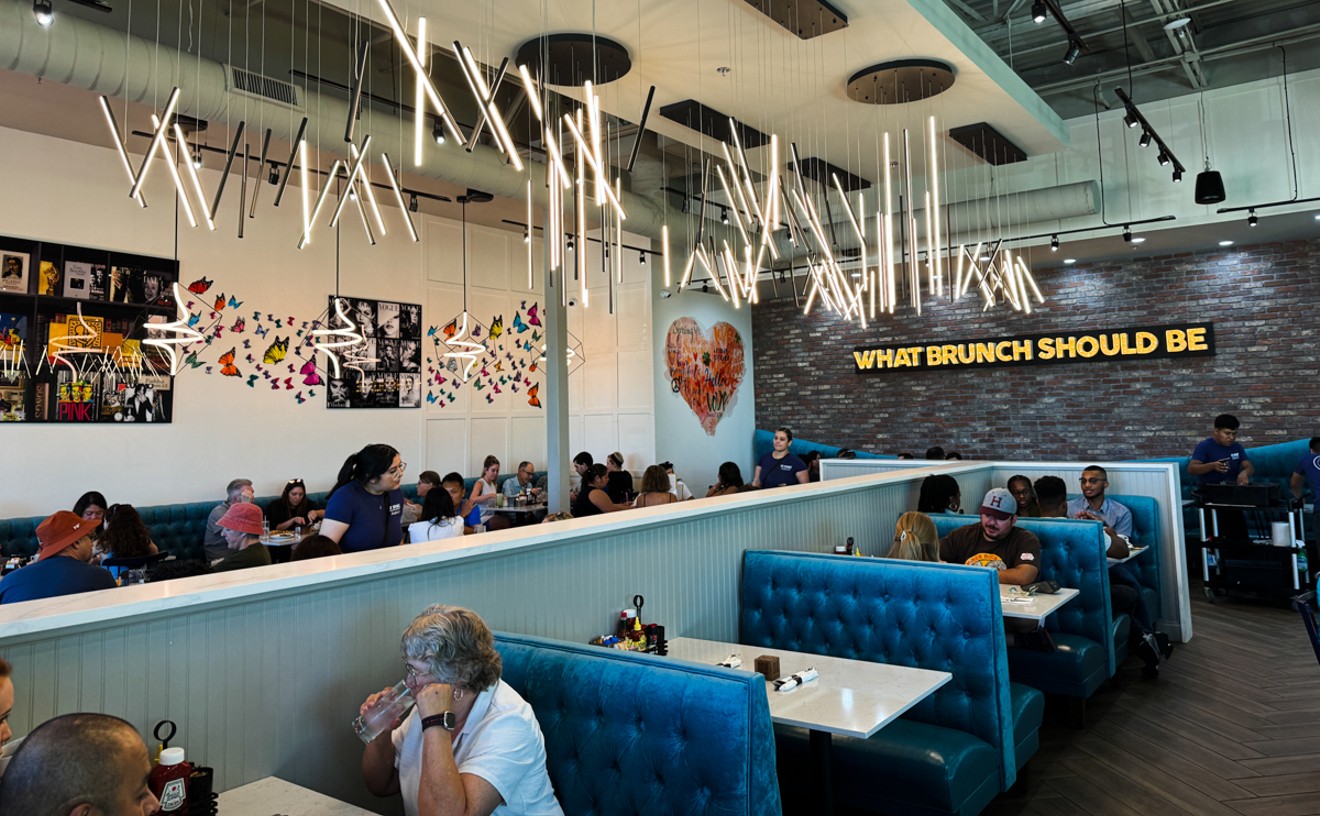Joel Morales, co-owner of Peak Inn and Adair’s Saloon, and the genius behind this stunning burger, won't let the whiplash win though.
He opened the Peak Inn in November 2019. Since then, he’s put his heart and soul into this spot, and by February, things were looking good. In a recent conversation, Morales calls it his retirement bar, the kind of place where he wants to find a stool to call home later on down the road.
Then, 2020 kicked that barstool right from under him. In one week, Morales had to close two businesses. Retirement plans suddenly looked bleak.
But, where there’s a superior burger in a dark bar with a cold beer, there’s a way. After digging through social media threads and messaging lawyers, Morales has already reopened one place and another is in the works.
Morales closed the Peak Inn in March along with all other bars. In May, when the state thought it was reopening, he served customers at a limited capacity. Then, he had to close again in late June after COVID-19 cases increased sharply.
By June, Morales set up two tablets for UberEats and to-go orders for his from-scratch bar food. In dive bar fashion, he took orders until 2 a.m. Those tablets buzzed all night, enough that he was able to keep his staff and kitchen running.
But, that wasn't enough. It didn't sit well with him that restaurants with very similar business models were open.
"I'm just very hard-headed. I always have been. I just won't take no for an answer," Morales says.
And, finally, the TABC is accommodating some bars that have transitioned their business models recently.
Morales discovered the food and beverage (FB) certificate through a comment after he’d asked a Facebook group about how to reopen as a bar that was selling a lot of food.
Think of the FB certificate as a side hustle to a liquor license; your main business is booze, but for now you’re pushing a lot of burgers and corn dogs (looking at you, Lakewood Landing).
In an Industry Notice released by the TABC on July 30:
“If you have changed or will change your business model to incorporate permanent food service facilities, you may apply for a Food and Beverage Certificate (FB) from TABC.”"I'm just very hard-headed. I always have been. I just won't take no for an answer." – restaurateur Joel Morales
tweet this
Based on his brisk UberEats and to-go sales recently, Morales applied for this certificate for the Peak Inn and it was approved. He’s already reopened for in-house dining at 50% indoor and 100% outdoor capacity.
Per the TABC, “Applying for an FB allows businesses to include projected sales to reflect changing business models and practices.”
In the industry notice, it states that alcohol sales must still be less than 51% of gross sales, as they are for restaurants with alcohol licenses. But, the TABC’s website states that liquor sales must be less than 60%. Talk to your TABC person about for clarification on that (and let us know what they say).
There are a few stipulations though; you can’t just toast waffles and make every customer buy one for $12 each and then sell dollar vodka and sodas to put you below the 51% threshold. There are laws that prevent bars from promoting wanton drunkenness.
Also, applying bars are required to submit menus as part of the approval process, and there must be at least eight meals. (Chips are not a meal.)
Additionally, the food needs to be prepared on site, but that can be in a food truck.
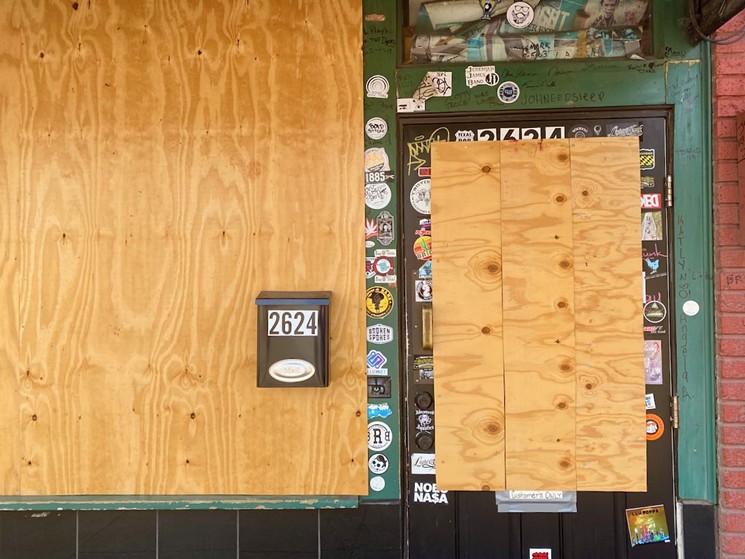
Adair's Saloon hopes to repurpose the plywood adorning the front of the space soon.
Lauren Drewes Daniels
A wee bit southwest of The Peak Inn, Morales' other bar, Adair’s Saloon, is working on the affidavit option. In this scenario, owners complete an only slightly intimidating spreadsheet that requires three numbers: alcohol sales, food sales and nonfood sales SINCE APRIL 1, 2020.
If your alcohol ratio is less than 51% of gross receipts, then you get a gold star for the day. You can also reopen.
The TABC makes sure to clarify that this calculation does NOT include alcohol sales intended to be consumed away from the license-holder's property, which is pointing right at you, breweries. Breweries are the primary businesses that would sell booze off-site, like for example, Deep Ellum Brewing Co., which sells six-packs in retail outlets across the state. They would NOT include their retail sales in the calculation, rather only the beer they sell at the brewery downtown. So, if DEBC's brewery and restaurant has sold more food than beer since April 1, then they could reopen their taproom and beer garden.
In Morales’ case, he installed a drive-thru at the back of Adair’s in Deep Ellum selling burgers and sandwiches to construction crews and loyal customers on the weekends. If his affidavit gets approved, he’ll be able to open at 50% indoor capacity, 100% outdoor capacity and sell booze to-go.
Again, his ratio of food to liquor still has to stay below 51%. But, clever minds can (and are) finding ways to ensure that.
So, the reins have been loosened a wee bit for bar owners.
Kelsey Erickson Streufert, the VP of government relations and advocacy for the Texas Restaurant Association, says it is a small step in the right direction.
“On-premise alcohol sales still have to be under 51%, which would exclude bars,” Streufert says. “But this allows restaurants that were misclassified as bars before due to their handgun signs or 2019 sales to essentially prove-up that they’re a restaurant and selling less than 51% alcohol now.”
Morales is now just trying to spread the good word.
“I’m sending it to friends of mine in the industry, trying to broadcast it to everyone,” Morales said, surprised at how few people really know about these avenues to reopen.

